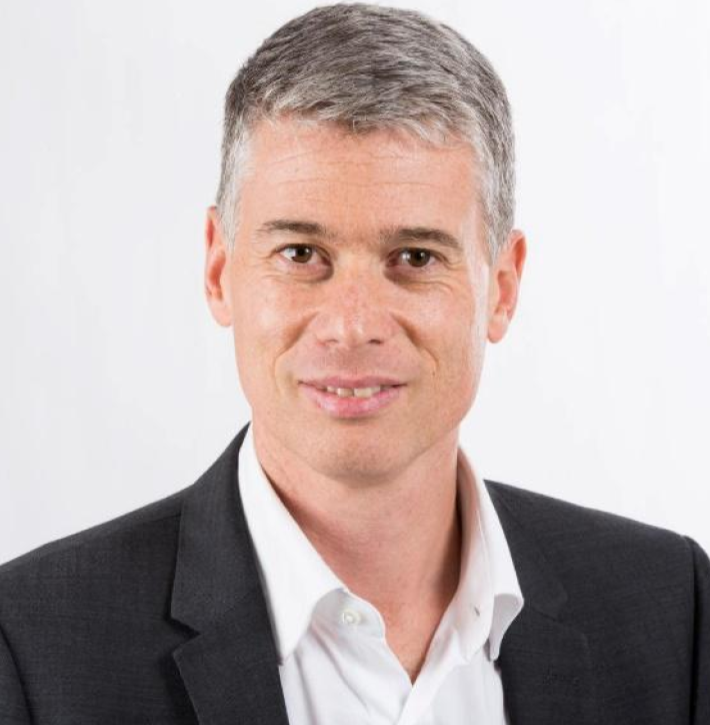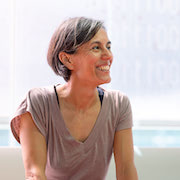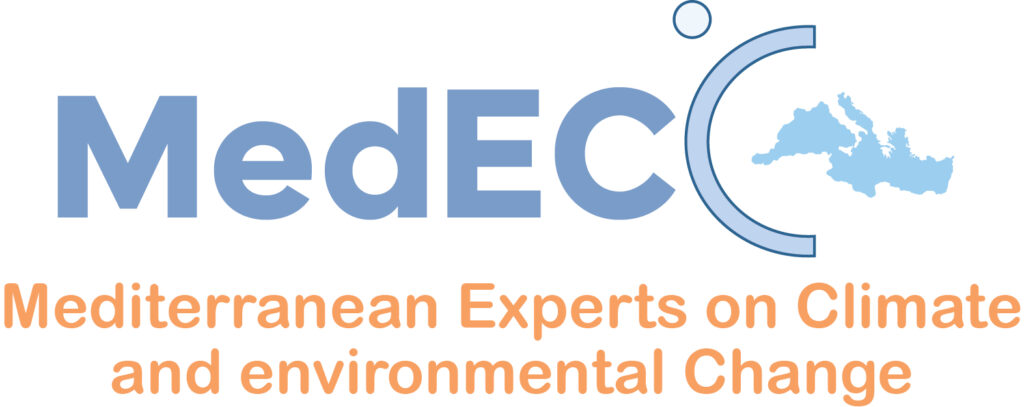MedECC welcomes new Report Coordinators
Following a Call for Experts, the MedECC Steering Committee has appointed three esteemed researchers to coordinate the development of the Second Mediterranean Assessment Report (MAR2). With expertise from diverse fields, they bring a deep understanding of the interconnected risks of climate and environmental change in the Mediterranean. They also have extensive experience with regional assessment reports, contributing to science-policy needs and outreach for policy development. We are grateful for their commitment to contribute their expertise and time in leading this effort, as they will guide a group of international experts from across the Mediterranean region in developing MAR2 and making it accessible to policymakers and citizens.

Mohamed Abdrabo – Professor of environmental economics and Head of Alexandria Research Centre for Adaptation to Climate Change (ARCA) at Alexandria University (Egypt). Expert in environmental economics and climate change adaptation, particularly in the context of socio-economic impacts.

Philippe Drobinski – CNRS Research Director and Professor at the Ecole Polytechnique, Director of the Laboratoire de Méteorologie Dynamique (LMD) and of the Energy4Climate Interdisciplinary Center (France). His research focuses on meteorology, the study of Mediterranean climate variability and evolution and energy transition.

Marta Guadalupe Rivera Ferre – Researcher at INGENIO (CSIC-UPV), Spanish National Research Council-Polytechnic University of Valencia (Spain). Marta specializes in food systems from a socio-ecological perspective, focusing on the intersection of environmental and food security challenges in the Mediterranean.
Interviews with the Coordinators
Mohamed Abdrabo
My line of work is environmental and climate change economics and socio-economics, which can provide some insights that complement the technical side of these fields. It can also contribute to the information and knowledge conveyed to stakeholders, including policymakers. The economic and socio-economic perspective would not only provide some insight into the underlying anthropogenic drivers of such issues that we should be addressing nowadays.
I hope that the MAR2 report will increase awareness about different environmental and climate change issues that the Mediterranean region experiences and is projected to experience in the near and far future. I hope it will also promote action at different levels of the Mediterranean region to address the underlying causes of such issues as well as their impacts on its environmental, economic, and socio-cultural well-being.
This report is about knowledge that may assist in making informed and effective initiatives and policies. This can only be achieved by providing the most comprehensive, science-based assessments integrating technical, economic, and socio-cultural perspectives on the environment and climate change, their impacts, and possible actions.
In this context, the MedECC brings together experts on these issues from the region and beyond to assess and synthesise the latest environmental and climate research focusing on the region. It also ensures that policymakers, businesses, and the public receive reliable, peer-reviewed information. It is worth noting that MedECC does not make policies, but its reports may help governments create their policies and negotiate regional action and initiatives.
Philippe Drobinski
I am motivated to coordinate the 2nd Mediterranean Assessment Report because I firmly believe in the power of science-based policymaking to address the pressing environmental and climate challenges facing the Mediterranean region. I was a Lead Author of the energy transition chapter of the MAR1, as well as co-coordinator of the MedECC special report on the interlinkages between climate change and the water-energy-food-ecosystem nexus. Building on the success of previous MedECC reports, my vision for MAR2 is to strengthen the scientific foundation for regional adaptation and mitigation strategies by fostering interdisciplinary collaboration and ensuring that the latest findings are effectively synthesised and communicated.
Among the latest research achievements are the attribution of regional extremes to climate change, and the study of very low probability/very high impact events. Also, the rapid and ongoing urbanisation and modernisation of the southern Mediterranean, combined with the region’s extensive agricultural sector, highlights the urgent need to recognise and address the vulnerability of both cities and rural areas to climate and environmental change. In an already water-scarce Mediterranean, these transformations intensify pressures on natural resources, infrastructure, and livelihoods, making it crucial to develop comprehensive strategies for resilience.
Effectively tackling these challenges requires an integrated approach that bridges natural and human sciences, ensuring that scientific knowledge translates into practical, context-specific solutions for sustainable development and climate adaptation. I am committed to enhancing the inclusiveness and impact of MAR2 by engaging a diverse group of experts. My expectation is that MAR2 will serve as a crucial tool for decision-makers, providing actionable insights that help bridge the gap between science and policy, ultimately fostering resilience and sustainability across the Mediterranean.
Marta Guadalupe Rivera Ferre
In terms of the process, I have participated as lead author both in the AR5 and AR6 process of the IPCC and the nexus assessment of IPBES. Being familiar with these rigorous and unique processes in how to write a report that brings together the current best evidence on climate change and biodiversity loss is important to inform policymakers on the trends and available options to tackle those challenges.
From a scientific expertise, my work on analysing food systems from a socio-ecological complex perspective, can help to shape a report that rather than the sum of different chapters can provide a holistic narrative to tackle the challenges associated with global environmental change in the Mediterranean, combining both ecological and social dimensions.
I expect MAR2 to bring practical and feasible options that help the Mediterranean region, its people and ecosystems, to thrive, considering plausible ways that can facilitate a change in current development trajectories towards transformative change. I hope the scientific impact will be more into the consolidation of the MedECC as a rigorous and credible science-policy space.
In terms of political and societal impact I hope it will help to raise awareness of the need to change current trajectories of development in the region, and after reading it, both policy-makers and citizens can feel in their bodies the need to act for change. One big challenge is how to communicate the findings in a way that policymakers and citizens can understand the real need for change and the plausibility of implementing the actions towards this aim.
What’s next?
Following a Call for Experts launched in February 2025, the Steering Committee has selected participants for the upcoming online Scoping Meeting scheduled for 14 and 22 April 2025. Experts from across the region will discuss and define the key topics, issues, and questions to be addressed in the report, ensuring the most relevant scientific, technical, and policy priorities are covered. They will also consider insights from the pre-scoping survey launched in February 2025 in the Mediterranean. Authors will then be appointed based on required expertise, with attention to regional and gender balance.
The MAR2 will update the scientific knowledge on the climatic and non-climatic drivers of environmental change in the Mediterranean, assess the impacts and multiple risks incurred, and also explore solutions to help achieve the Sustainable Development Goals (SDGs) in the region, while assessing the progress since the publication of the MAR1 in 2020. It is expected to be published in 2028, after two rounds of expert peer review, and the Summary for Policymakers to be presented to Mediterranean stakeholders during a MedeCC Plenary Session.

